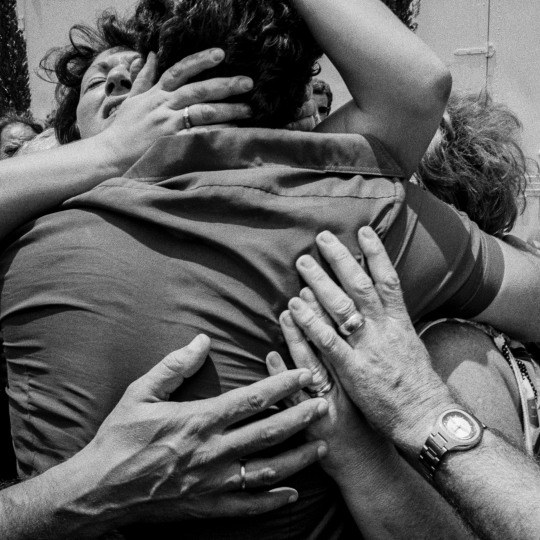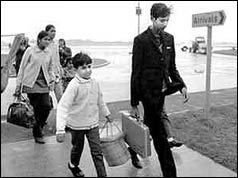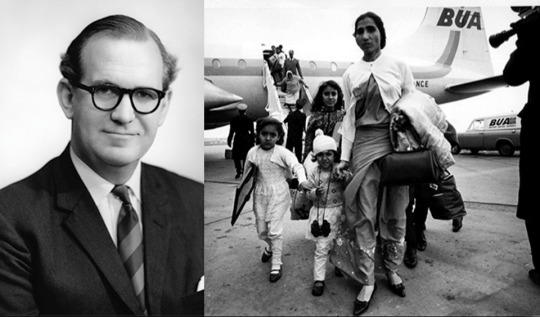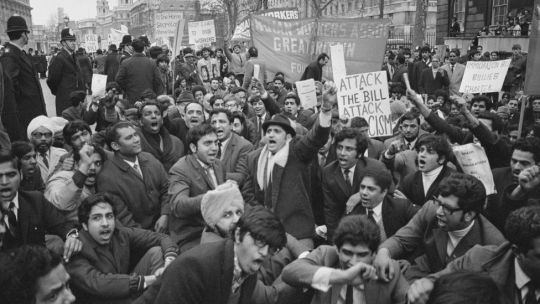#Entebbe Airport
Explore tagged Tumblr posts
Text
Entebbe Airport Unveils Powerful New Fire Trucks to Strengthen Aviation Safety
The Uganda Civil Aviation Authority (UCAA) has commissioned two new, state-of-the-art fire trucks at Entebbe International Airport to enhance aviation safety. The event was presided over by the Minister of Works and Transport, Gen. Katumba Wamala, and other key officials yesterday, Wednesday, October 22, 2024. The new fire trucks, known as Tango 21 and Tango 22, have advanced features that make…
0 notes
Text
#uganda airport transfers#entebbe airport transfers#entebbe airport taxi#entebbe international airport#reliable taxi & shuttle services in uganda#entebbe airport#airport transfers#shuttle services in uganda#airport transfers taxi#kampala shuttle services
0 notes
Text
Three journalists brutally assaulted for exposing rot at Entebbe Airport
At least three journalists were violently detained by authorities in Entebbe on Thursday evening while riding on a bus operated by the Uganda Civil Aviation Authority (UCAA). The UCAA bus that nearly killed them was photographed by the three journalists, George William Kakooza (CBS FM), Sulah Kagugube (UBC), and cameraperson Norah Odoi, who were held at Abaita Ababiri police station for more…

View On WordPress
0 notes
Text



Entebbe Airport in Entebbe, Uganda. The airport was recently renovated and expanded.
4 notes
·
View notes
Text
Parliament Orders Investigations Into Entebbe International Airport
By Brenda Namugenyi Parliament has directed the works and transport ministry to give a status report on allegations of extortion and frustration of passenger at the airport by employees at the country’s only international Airport. The Airport has been at the spotlight following a social media backlash after passengers protested acts of extortion from employees, some reaching an extent of…

View On WordPress
0 notes
Text
One of the worst justifications for the Hamas massacre that I have seen is the idea that the Palestinians had been suffering for 75 years, and such a long period of suffering is what made them be so brutal towards the civilians in the Jewish state.
This ignores, of course, brutal massacres that happened way before decades had passed since Israel's Independence War (which the Arabs started and lost). One such massacre took place on March 17, 1954. Less than five years after the end of that war. The other day, we commemorated 70 years since it happened. In order to remember, one reporter interviewed a survivor.
The entire piece was too long for Tumblr even after I downgraded the vid quality, so I edited out parts that were less relevant to understanding the massacre, and the story of this one child survivor.
Translator's notes:
-> Chaim'keh is the affectionate diminutive for Chaim, Mira'leh is the same for Miri.
-> In another interview, Miri shared that the reason her dad was taking them to Eilat, was because he wanted them to move to Israel's most southern city, meaning he felt Chana and the kids should see it.
-> This is the Ma'ale Akrabim road, you can see how serpentine it is, and the bus was driving uphill, explaining why it had to slow down so much that it became a perfect target for the terrorists.

-> 'Confirmation of killing' is a military term, referring to any situation where after shots have been fired at someone, the shooter comes closer and shoots (or wounds) again, from a much smaller distance, to make sure the victim is indeed dead, and not just wounded.
-> Chaim was shot in the head point blank, but somehow he technically survived. However, he was left in a coma for the next 32 years, before passing away and becoming the final murdered victim of this massacre.
-> Excluding Chaim, but including Miri, 5 people survived the Ma'ale Akrabim massacre.
-> Ha'Shomer Ha'Tzair (Hebrew for: the young guardian) is the first Zionist youth movement, established in 1913. It's also a socialist one.
-> A chuppah is a canopy under which Jewish couples get married.
-> Sayeret Matkal is an elite Israeli unit, whose most well known operation is the 1976 IDF rescue of Israeli and Jewish hostages (all the non-Jewish hostages were released, other than the French air crew of the hijacked Air France airplane, because the Captain refused to leave the Israeli and Jewish hostages on their own. The kidnappers were 2 German terrorists and 2 Arab ones who were members of a Palestinian terrorist organization. The Israeli and Jewish hostages were held in an airport in Entebbe, capital of Uganda, that the terrorists believed the IDF couldn't reach, since the distance was greater than Israel's airplanes could fly to and back, and passed over enemy territory. Several movies have been made about the operation, including an Israeli one, which was nominated for an Oscar, for best foreign film, in 1977).
-> Z"l is the English transcription of the Hebrew abbreviation ז"ל, which stands for may his/her/their memory be a blessing.
(for all of my updates and ask replies regarding Israel, click here)
#israel#antisemitism#israeli#israel news#israel under attack#terrorism#anti terrorism#hamas#antisemitic#antisemites#jews#jew#judaism#jumblr#frumblr#jewish#resources#israel under fire#israelunderattack
126 notes
·
View notes
Text









onthisdayinjewishistory
July 4, 1976: Entebbe Rescue ⚡️🇮🇱 On 26.6.76, the terror groups, Popular Front for the Liberation of Palestine and the Red Army Faction (a West German radical leftist group) hijacked an Air France plane flying from Israel to France. They took 248 passengers hostage and released 148 non-Israeli or Jewish hostages after stopping in Athens. After, they flew to Uganda and demanded the release of 47 terrorists or they would shoot the hostages. Lt. Colonel Joshua Shani was tasked in leading the rescue with two days to plan. Working with Lt. Col. Yonatan “Yoni” Netanyahu, they formulated a plan in those two days, improvising for the remaining challenges. They decided to use President Idi Amin’s nightly route to their advantage, driving up in vehicles similar to his convoy to approach the terminal discreetly. Although the mission hadn’t been approved by the Israeli government, the planes took off #onthisday due to time constraints. Flying low to avoid radar detection, they reached Uganda despite encountering bad weather. The paratroopers dismounted, engaged with security forces, and stormed the terminal. Simultaneously, the IDF destroyed eight out of twelve Ugandan Air Force planes to prevent pursuit. The hostages were rescued, loaded onto a plane, and flown to Israel. The mission was a success, saving 102 out of the remaining 106 hostages. Lt. Col. Yonatan “Yoni” Netanyahu was killed in action and 3 of the hostages were also lost in the process. Lt. Colonel Joshua Shani and Lt. Col. Yonatan “Yoni” Netanyahu got widespread recognition for their bravery and leadership. They were commended by the Israeli government and received military honors for their role in saving the hostages. Many, including the UN and Uganda itself, condemned the rescue in a similar fashion as some did in the recent Gaza hostage rescue mission last month. The mission was as a testament to the elite training and capabilities of the IDF in executing complex and high-risk operations. The event also led to a reassessment of airport security measures. This was one of many hijackings from Palestinian terror groups in the 70’s in a backwards attempt to gain international attention.
#OTD#Jewish History#Entebbe#Rescue#Uganda#PFLP–EO terrorists#Operation Thunderbolt#Operation Yonatan#Yonatan Netanyahu
59 notes
·
View notes
Text
by Rafael Medoff
It may seem perplexing that anybody would criticize Israel’s rescue of four hostages from Gaza. But in 1976, there was criticism of Israel’s rescue of hostages from Entebbe, too. In June 1976, Palestinian Arab terrorists hijacked a French plane on its way to Israel and forced it to fly to the Entebbe airport in Uganda. There they released the non-Jewish passengers, and held the remaining 106 passengers and crew hostage, demanding the release of terrorists who were imprisoned in Israel. Ugandan dictator Idi Amin was deeply sympathetic to the terrorists, and Ugandan soldiers helped the hijackers guard the hostages. On July 4, Israeli commandos raided the airport and freed the hostages. All seven terrorists, and several dozen Ugandan soldiers, were killed. The only rescuer killed was the raid’s leader, Yonatan Netanyahu, brother of Israel’s current prime minister. Mrs. Dora Bloch, an elderly passenger who had been taken to a local hospital, was murdered there by Ugandan soldiers.Most of the world celebrated the rescue raid on Entebbe. But not everybody. The Organization of African Unity, consisting of several dozen African countries, accused Israel of “wanton aggression” and demanded reparations for damage to the airport. The Soviet and Chinese governments denounced what they called “the Zionist aggression.” United Nations Secretary-General Kurt Waldheim charged that Israel had committed a “serious violation of the sovereignty” of Uganda. A few years later, Waldheim’s past as a Nazi war criminal was exposed. (However, that did not prevent his election as president of Austria in 1986.) The Mexican government criticized Israel’s “flagrant violation” of Ugandan sovereignty, and declared its “firm rejection of the use of armed force by any state as a means of trying to solve conflicts.” The Mexican position was especially surprising because just months earlier, it had explicitly promised to refrain from anti-Israel policies. That promise was made in order to secure an end to the boycott of Mexico announced by Jewish organizations following its support of the infamous Zionism-is-racism resolution at the U.N. in 1975.The French government’s response to the Entebbe rescue was particularly troubling, given the fact that it was a French plane that was hijacked, and French crew members who were held hostage. The French Foreign Ministry issued a brief statement which expressed satisfaction at the rescue, but emphasized its condemnation of the casualties, almost all of whom were the terrorists or the soldiers who assisted them. A spokesperson for the Air France crew read a statement hailing President Amin for his “constant care to ensure our safety, our material comfort and even our health.” The statement appeared to have been dictated by French officials. The U.S. government publicly praised the Israeli rescue mission, but it also introduced an “even-handed” resolution at the U.N. Security Council. While condemning the hijacking, the resolution also affirmed “the need to respect the sovereignty and territorial integrity of all States.” The resolution did not secure enough votes to pass, so it was withdrawn. At the same time — according to declassified documents — Secretary of State Henry Kissinger informed Israel’s ambassador in Washington that because the Israelis had used US equipment in the raid, “we will have to put a temporary freeze on military shipments.” Ambassador Simcha Dinitz replied: “You are kidding me.” Kissinger was not kidding. “
31 notes
·
View notes
Text

Mich Bar-Am. The Return from Entebbe, Ben Gurion Airport, 1976
Follow my new AI-related project «Collective memories»
#Micha Bar-Am#Israel#Entebbe#Ben Gurion#1976#1970s#70s#history#historico#histoire#história#Geschichte#記録#史籍#由来#historia#histórico#historyczny#역사#역사���#歷史,歷史#BW#Black and White#Preto e Branco#Noir et Blanc#黒と白#Schwarzweiß#retro#vintage
27 notes
·
View notes
Text
What happened in Entebbe, Uganda, on July 4, 1976, was one of the happiest events in modern Jewish history: A group of Jews destined to be murdered was saved from its attackers.
The crisis at Entebbe had been precipitated on June 27, when terrorists of the Popular Front for the Liberation of Palestine hijacked an Air France plane to Uganda. The choice of country was no accident; Uganda's dictator, Idi Amin, was one of the few world leaders willing to go on record as an admirer of Adolf Hitler's treatment of the Jews. The hijackers seemed intentionally to evoke the association with German Nazism. Jewish and Israeli passengers were quickly separated from non-Jews in a manner reminiscent of the Nazis. Once they had their hostages on hand, the terrorists announced that they would murder the Jews unless Israel and other countries released fifty-three Palestinian "freedom fighters."
Israel entered into negotiations with the PLO, even as Israel antiterrorist units examined all possible military options for freeing the captives. Fortunately, Israel had detailed photographs of the Entebbe airport that had been taken several years earlier when a friendlier government was in power, and Israel had helped train the Ugandan Air Force. Israeli agents grilled the non-Jewish passengers who had been released, and learned many details about the terrorist operation, most important of all being the precise location of the hostages and the guards. On the afternoon of July 3, less than a day before the hostages were due to be murdered Defense Minister Shimon Peres ordered the rescue mission on its way.
The lead Israeli plane flew at a sufficiently low altitude to evade Uganda radar, then landed in a remote part of the airport. Three other planes followed. A Mercedes-Benz was lowered out of the first plane, with a hefty Israeli soldier inside made up to resemble Amin. The Israeli imitation of the usual Amin entourage confused the Ugandan and terrorists troops for several seconds. The Israelis burst into the terminal where the hostages were held, and within fifteen seconds killed the terrorists guarding them. Less than an hour after the first Israeli plane arrived, the hostages were flown out of the country. Unfortunately, one elderly Jewish woman, Dora Bloch, had been taken earlier to a Ugandan hospital. After the Israelis left, Amin had her murdered. Three other hostages were killed during the operation.
The commander of the Israeli force, Captain Yonatan Netanyahu, was the only Israeli soldier killed during the mission. He has since become one of the heroic figures of modern Jewish life, and a large selection of his letters were published posthumously in a deeply moving book.
On July 4, 1946 - thirty years to the day before Entebbe - forty-two Jewish survivors of the Holocaust who had returned to their hometown village of Kielce, Poland, were murdered in a brutal pogrom by their Christian neighbors. On July 4, 1976, over a hundred Jews who were about to be murdered were saved by the Israeli Army. More than anything else, Entebbe continues to symbolize for Jews the importance of there being a Jewish state. When they didn't have a nation of their own, Jews could be killed with impunity. With a state, for the first time in two thousand years, Jews who were threatened had a fighting chance.
- Jewish Literacy, Rabbi Joseph Telushkin, pages 347-348
5 notes
·
View notes
Text

October 1996. RAF Canberra PR Mk 7 navigator of 39 (1 PRU) Squadron after returning to Entebbe Airport, Uganda after successful photographic recce. The squadron were deployed to Uganda providing photographic reconnaissance of refugees over East Zaire.
@ron_eisele via X

17 notes
·
View notes
Text
#uganda airport transfers#entebbe airport transfers#entebbe airport taxi#entebbe international airport#reliable taxi & shuttle services in uganda#entebbe airport#airport transfers#shuttle services in uganda#airport transfers taxi#kampala shuttle services
0 notes
Text


On 18th September 1972, BBC News reported that the first 193 Ugandan refugees, fleeing persecution by the country’s military dictatorship, had arrived at Stansted Airport, Essex. Over half of the arrivals had British passports, and housing and immediate needs would be overseen by the Ugandan Resettlement Board.
Uganda’s Asian community, numbering around 55 000, many of whom ran family businesses and small enterprise, were ordered in August 1972 to leave the country within 90 days by President Idi Amin. Amin had publicly denounced Ugandan Asians as ‘bloodsuckers’, threatening that any who had not left by the arbitrary deadline of November 8th would be interned in military detention camps.
Many of the initial flight of refugees had endured frightening experiences prior to their departure from Uganda, at the hands of Amin’s troops. "On the way to the airport the coach was stopped by troops seven times, and we were all held at gun point," one refugee told reporters. Another stated that he had been robbed of personal valuables and Ugandan currency on the way to Entebbe airport.
News reports at the time cited some opposition within the UK over the acceptance of the Ugandan Asians. The Leicester local authority mounted a newspaper campaign urging refugees not to come to their region seeking jobs and housing. The BBC asserted that, in hindsight, the resettlement programme was seen as ‘a success story for British Immigration’.
The loss of the hardworking and successful Ugandan Asian community devastated Uganda’s agriculture, manufacturing and commerce. Idi Amin was deposed in 1979 and died in Jeddah in 2003, having been responsible for the deaths of as many as 300 000 Ugandan civilians during his reign of terror as President. In 1991, Ugandan President Yoweri Museveni invited the expelled community to return home to help rebuild the economy.
The Wilson Labour government also had to grapple with a refugee crisis from a former African colony.
In February 1968, BBC news reported;
"…Another 96 Indians and Pakistanis from Kenya have arrived in Britain, the latest in a growing exodus of Kenyan Asians fleeing from laws which prevent them making a living…"
Many Asian people living in Kenya had not taken up Kenyan citizenship following the country’s independence from Britain in 1963, but possessed British passports. Under Kenya’s Africanisation policy, non-citizens required work permits, and were being removed from employment in favour of Kenyan nationals. There was growing public demand for laws to prevent non-citizens from owning businesses or even operating as street and market traders. As a result, British passport holders were leaving Kenya at the rate of 1000 per month, leaving a huge deficit in skills and experience within the business community and civil service.
Fearing a backlash over the large numbers of Asian immigrants, Home Secretary, and future Prime Minister, James Callaghan, rushed through the Commonwealth Immigration Act, which made it a requirement that prospective immigrants must have a 'close connection' with Britain.

This led to disagreement in Cabinet, with Secretary of State for Commonwealth Affairs, George Thomson (1921-2008) arguing;
"…To pass such legislation would be wrong in principle, clearly discrimination on the grounds of colour, and contrary to everything we stand for…"
In 1971, the Heath government made further legislative changes that would mean that (some) immigrants from Commonwealth countries would be treated no more favourably than those from the rest of the world, and that tightened restrictions on those who stayed by linking work permits to a specific job and location, requiring registration with police, and reapplication to stay in Britain each 12 months.
The Patrial Right of Abode lifted all restrictions on those immigrants with a direct ancestral connection with Britain.

Home Secretary Reginald Maudling (later famous for being smacked in the face by Irish MP Bernadette Devlin, and for having to resign over a corruption scandal linked with disgraced property developer John Poulson) denied that this was, in effect, a 'colour bar', telling the BBC;
"…Of course they are more likely to be white because we have on the whole more whites than coloureds in this country, but there is no colour bar involved…"
Unsurprisingly, not everyone was convinced.
Vishna Sharma, Executive Secretary of the Joint Council for the Welfare of Immigrants, described the bill to BBC News as, "basically racially discriminatory, repressive and divisive," and added, "It will create divisions amongst the Commonwealth citizens already living in this country on patrial and non-patrial basis. It will create day-to-day bureaucracy and interference on people living in this country. It will create more hardship for people wanting to enter into this country."

(Source; BBC reporting and history.com. Photo Credits; BBC News)
#social history#uk politics#working class history#social justice#uk government#human rights#uk history#british culture#society#history#race relations#immigration
27 notes
·
View notes
Text
Instruments of Dehumanization
How U.S. laws—branding Palestinians as “terrorists” and redefining anti-Semitism—serve Israel’s interests.
In 1979 Benjamin Netanyahu and his father Benzion—both newly returned to Israel—convened, in Jerusalem, the first-ever conference on “international terrorism.” The event was hosted by the Jonathan Institute, which the Netanyahus had formed in 1976 in the memory of their son and brother Jonathan, an Israeli fighter killed in a raid on Entebbe International Airport in Uganda to rescue passengers on a hijacked plane. The conference brought together Israeli military and political officials (among them current and future prime ministers Menachem Begin and Shimon Peres) with U.S. neoconservative groups and politicians. At the conference the Netanyahus peddled a novel view of terrorism that presented it as a satanic threat from irrational, demonic enemies that was anathema to Western values of freedom and democracy and aimed to destroy the West itself. In order to save themselves, Benzion Netanyahu argued, Western countries had to abandon commitments to international law and multilateral, UN-led action and instead use whatever means necessary to annihilate the threat of terrorism. To the Americans at the conference, the new definition was appealing. It could be used to challenge popular skepticism about U.S. military force following Vietnam: if terrorists presented a real, existential threat to the United States, it was both desirable and necessary to use U.S. military force to confront that threat from wherever it might emanate. It was also appealing to the neocons as a tool to be used in the United States’ struggle against the Soviet Union, in order to recast the Soviet Union as a purveyor and sponsor of terrorism threatening the West. For the Netanyahus, however, the concept of terrorism served a different objective, namely, to equate the “evil” of terrorist activity with Arabs and Muslims generally—and Palestinians in particular. In drawing these connections, the Netanyahus hoped that questions about the political legitimacy of the Israeli occupation could be pushed under the rug and Palestinian resistance to it would become a stand-in for the West’s besiegement by Islamist terrorism. The 1979 conference marked the beginning of sustained Israeli-led efforts to reshape U.S. law and policy to delegitimize Palestinian efforts at self-determination and liberation. In the years since the conference convening, U.S. law has systematically singled out Palestinians for discriminatory treatment in both explicit and implicit ways—more so than any other population and certainly no other population of such comparatively small size. These laws, which exist at both the federal and state level, have effectively transformed the U.S. legal system into an extension of the Israeli state itself. Many of these laws frame Palestinians as “terrorists” and treat certain kinds of support for the Palestinian cause as tantamount to supporting terrorist activity. More recently, Israel and its allies have adopted yet another strategy to quash pro-Palestine advocacy, which focuses on and promotes an expanded notion of anti-Semitism that includes criticism of Israel. Using this approach, these groups have succeeded in passing laws that depict support and advocacy for Palestine as anti-Semitic and illegitimate no matter how peaceful.
8 notes
·
View notes
Text
Extortion At Entebbe Airport: Aviation Authority Bans Staff From Use of Mobile Phones While on Duty
HICGI News Agency Entebbe International Airport By Brenda Namugenyi The Uganda civil aviation authority has launched investigations against staff of different agencies at the airport over claims of extortion. The authority has issued new guidelines to workers including ban of mobile phones while on duty. The mobile phones were used to extort money through electronic money transfers from their…

View On WordPress
0 notes
Text
Back in the warmth of Uganda.
Friday 15th Sept 2023
This last week was meant to be quiet and relaxed as we made our preparations for our Uganda trip, which includes running a 4 day workshop for 30 people next week. You know that quote about best-laid plans of mice and men -?
Our geriatric summer cycle tour is one of our year’s highlights. Ewan devises a wonderful route, this year in Burgundy, around Dijon, and through the glorious rolling Morvan landscape. Each day the four couples set out, taking it in turns to drive the support car or accompany the driver.
On this occasion my left knee was too painful to allow for cycling, so I was in the car every day. But then you get the fun of stopping for coffee and people watching, and shopping for a French picnic lunch and finding a happy spot on the cycle route, by a river or somewhere else agreeably scenic, and often complete with picnic table on the village green.

On the way up to Calais on Saturday 9th to take the shuttle, our dear old campervan came to a slow stop with flashing lights to match and we had to be taken off the autoroute by a big truck. (For the interested car technos, it was the fuel filter spraying fuel.) Saturdays and Sundays not best days to obtain Parts!
Insurance came up trumps, thankfully, and we were accommodated in a small hotel where we could get on with the work needed for Uganda – thank you, Internet – and after a final night in St Omer we left early on Tuesday morning to catch the shuttle and drive home.

Working to music en-route and once we have arrived
This left us with two days instead of that quiet and relaxed week to get ready for Uganda! But here we are, sitting in the peaceful garden of the Guinea Fowl Guest House, a favourite of ours in Entebbe. We are glad to be here after the long day flight from Manchester.

Though it was fun taking advantage of Special Assistance and being wheelchaired over those long airport walks. The young people doing the pushing and other ferrying were charming.

7 notes
·
View notes